By Robert Stoney, Director of Sustainability & Environmental Development
While it can be easy to get bogged down in the seemingly countless changes that can be made, it’s best to take small and simple steps towards making a positive impact yet remaining mindful of the increasing urgency to mitigate the effects of climate change.
In addition to updating appliances and standard operating procedures, which can at times be taxing on budgets, hospitality brands can tap travelers to help lighten the load and create a memorable and positive guest experience for all.
In fact, travelers really want to get involved and are actively seeking out ways to help. According to Booking.com research, 57 percent of Americans are saying they want to leave the places they visit better than when they arrived and 60 percent are saying they want to have experiences that are representative of the local culture. 19 percent of Americans say they have actively familiarized themselves with the local cultural values and traditions at their travel destination in advance of their trips and 20 percent would be willing to pay more for travel activities to ensure they are giving back to local communities. Despite the appetite to give back and connect during their travels, 40 percent indicate that they don’t know how or where to find activities or tours that ensure they are actually having a positive impact and giving back to the local community.
With sustainability initiatives spanning the globe, Valor Hospitality Partners consistently looks to The Lodge at Gulf State Park as a source of inspiration for implementing sustainability initiatives throughout. Through our work and environmental advocacy at The Lodge, we feel confident that the tourism industry as a whole can change directions and serve as a force for good to people, the planet and our surrounding ecosystems.
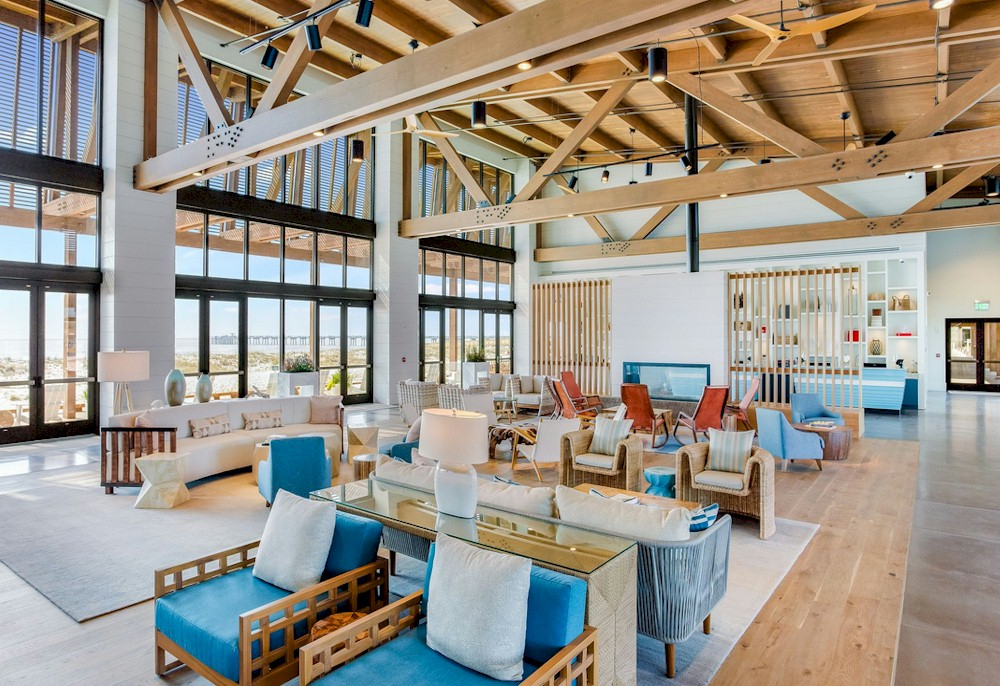
Replace Old Equipment with More Energy-Efficient Alternatives
As property appliances and tools begin to break down or show their age, this is a great time to change out equipment (HVAC, refrigerators, etc.) for more energy-efficient alternatives. It’s encouraging to see that manufacturers are now consistently creating new energy-saving options to keep up with sustainability trends, and there are incredible upgrades that not only serve their intended purpose, but also have additional eco-friendly features that increase overall property sustainability.
For example, condensation from the HVAC system can be collected and recycled to replace water in a hotel swimming pool. At The Lodge, summer high humidity collection peaks at 8,400 gallons per day and year-round this condensation collection system generates a sizable water saving that averages 2,000 gallons per day.
Install Kitchen Food Waste Processors, Grinders and Composting Capacity
The amount of food waste in a hotel restaurant can be astronomical and taking minor steps towards reducing it can make a lasting impact on the sustainability footprint of a property. I recommend installing equipment such as a commercial food waste grinder that meets the capacity of waste you are producing so that you are able to turn it into compostable material and/or dispose of it into the sewer line. The imperative is to keep the material out of landfill, and is the very least we should be doing, to prevent it decomposing to produce methane, a greenhouse gas at least 30 times more powerful than carbon dioxide.
In the same vein, increasing the composting capacity of a property is even more important as the installation of proper food processors and grinders. One product that we are loving right now is the below-ground worm-composting SubPods for our chef’s garden. This allows us to compost more than 15 gallons of food waste per week.
Recycle All Cooking Oil
It may seem like a simple solution, but recycling cooking oil is a great way to increase sustainability on property. We work with Restaurant Technologies Inc, in Birmingham, AL, to ensure that our waste cooking oil is disposed of properly and recycled. 90 percent of it goes into advanced biodiesel and 10 percent to animal feed. Biodiesel is not only renewable but cleaner-burning too, and reduces net CO2 emissions by 74 percent (compared with petroleum diesel) because the Carbon dioxide released from biodiesel combustion is offset by the Carbon dioxide absorbed from growing the crop that produces the oil.
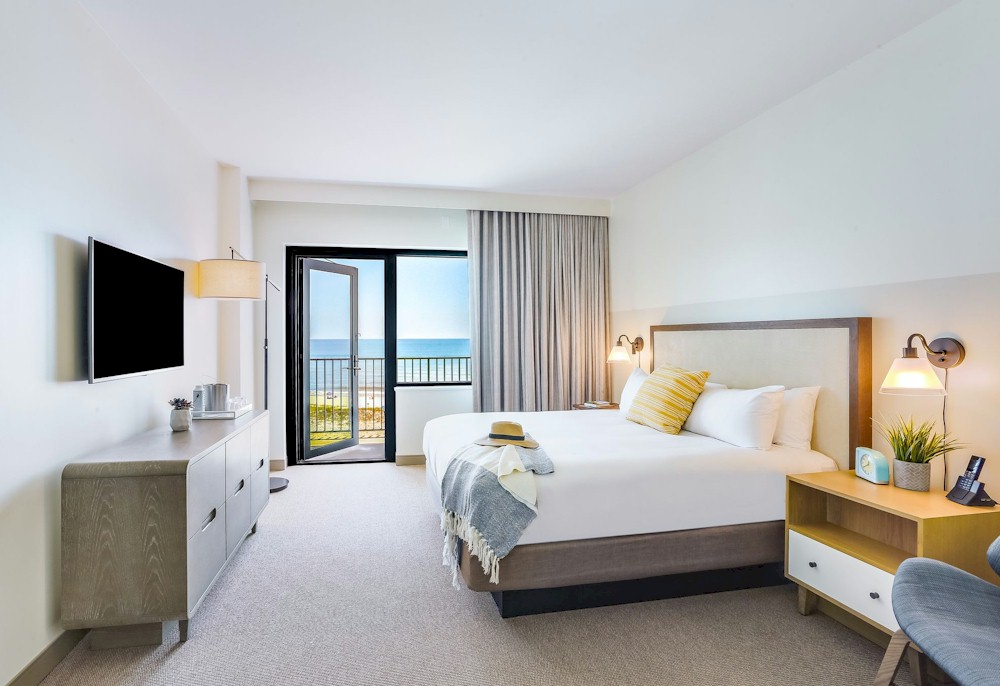
Install Sensors on Windows and Doors
As you update community guest rooms, a great way to increase energy-efficiency is to add sensors to windows and doors that cut off the heating or air conditioning if the balcony doors or windows are left open. Additionally, we have seen great success in adding low wattage, energy efficient lighting with motion sensors to reduce energy waste.
Reduce and Eliminate Single-Use Items and Plastics
For buffet breakfasts and in-room service, there is a superficial sense of convenience to single-use plastics or items. However, with a greater goal of sustainability in mind, there are dozens of options that allow properties to reduce and eventually eliminate these items. I specifically think of straws, utensils and napkins that can easily be swapped for biodegradable alternatives that still provide an exemplary experience for guests.
Install Water Bottle Filling Systems
At The Lodge and other locations throughout the park, we have installed 10 refillable water bottle stations to decrease the use of plastic water bottles that ultimately end up in landfills. Each water station has a small screen that displays a running total of 20-ounce servings poured, and therefore the number of plastic bottles saved from waste. Since their installation in 2019, we have recorded a total of 94,000 bottlefuls served. We want to continue to increase this number across Valor Hospitality properties as we grow as a leader in the sustainable tourism space.
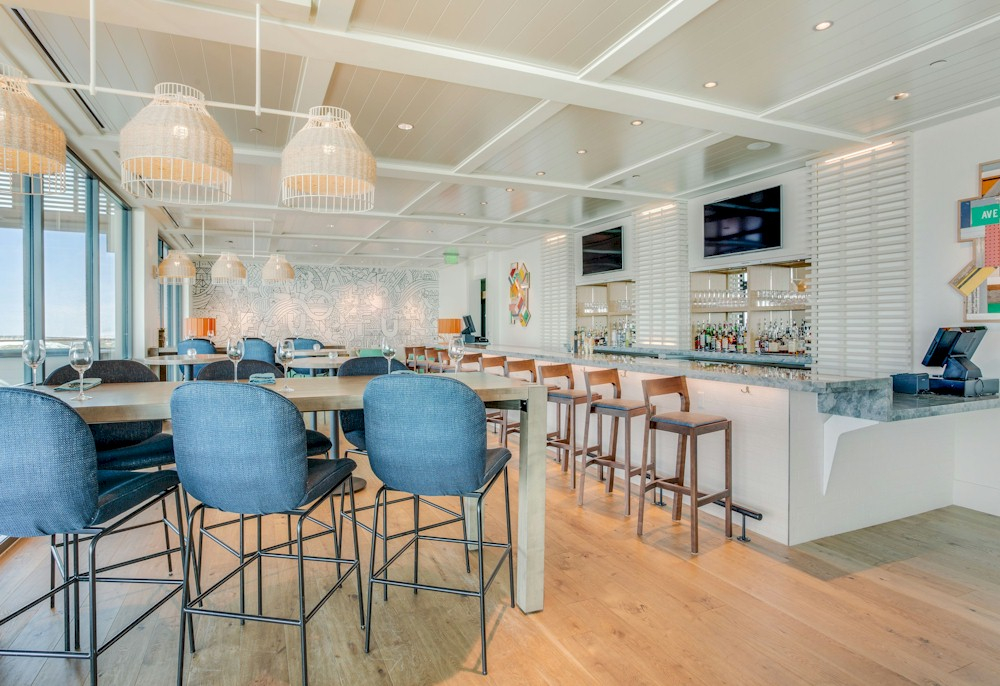
Prioritize Locally Sourced Foods
It’s a goal of ours to prioritize truly local foods and support local producers. For our team, this includes reducing food miles and mainly partnering with area farmers, producers, distributors and other manufacturers that are located within our property communities.
Use 100% Recycled and Biodegradable To-Go Containers
In the same vein of simple, sustainable swaps, we can switch restaurant or room service to-go containers from standard plastic or Styrofoam. There are several 100 percent recycled or biodegradable options that are nearly as cost-effective as traditional containers.
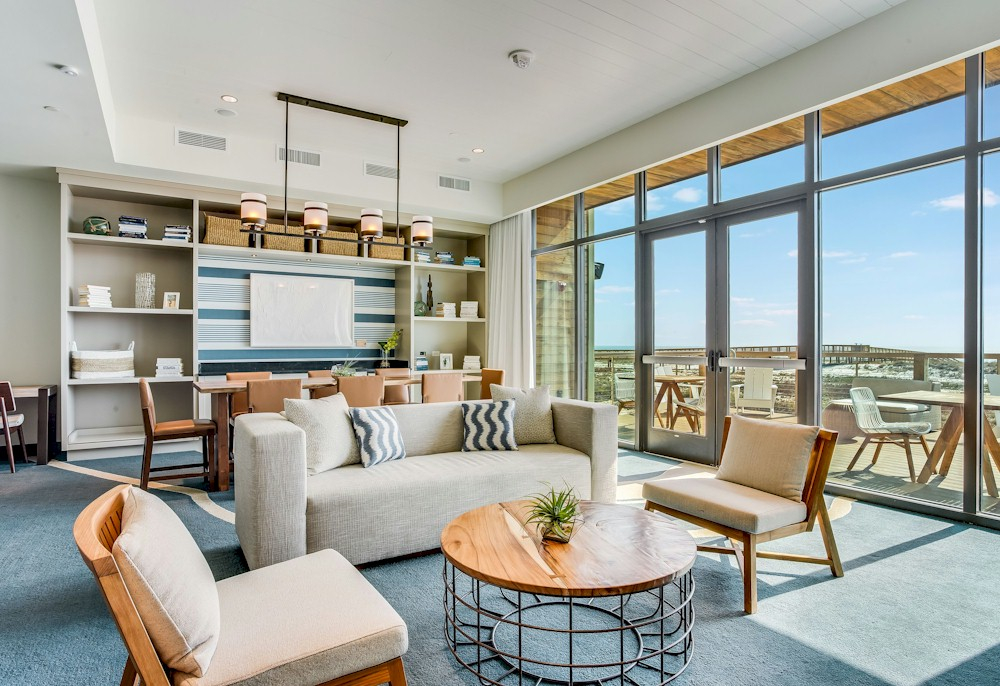
Extending Sustainability into the Local Community
At the Learning Campus, our state-of-the art environmental teaching facility nestled in the wilderness of the park, we partner with area schools, colleges, and universities to inspire the next generation to connect with, learn about, and look after the remarkable cultural and natural heritage that surround them. In this way we help provide one of the most important practices of sustainability, a direct outreach to the local community. In addition, at The Lodge, we also offer business groups opportunities for community outreach, that double as team building activities. These typically involve one of the management duties of dune maintenance and restoration such as the planting of sea oats, shoreline and dune trash collection and Christmas tree recycling.
Every day in the lobby we stage a ‘fun facts’ presentation called “Turtles at 2:00,” where guests can learn more about the sea turtles that come ashore to nest. This is not only a fascinating story, but a key example of the Share the Beach program, a way to let visitors understand that nature was here first and, for so many rare animals and plants, their only home.
We also offer more hands-on educational courses such as nature hikes in the park, organic gardening and worm composting and summer STEAM Camp classes for K-6 students. In collaboration with Alabama colleges and high schools, we continue to provide internship opportunities for students interested in careers in hospitality.
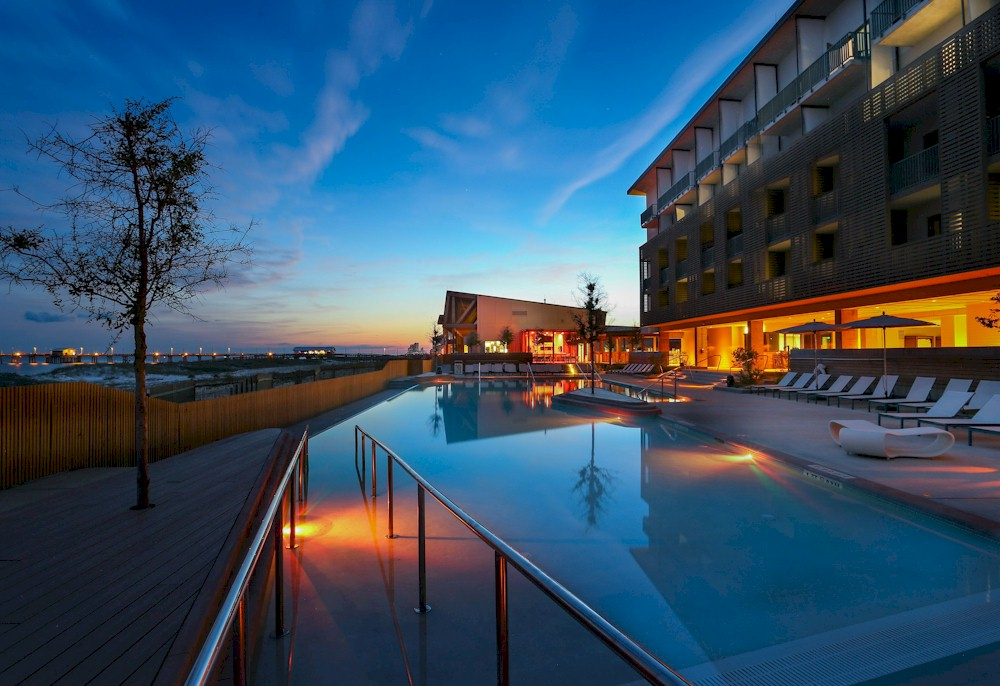
Challenges in Sustainability
A good way to understand sustainable hospitality is to view it as three pillars: 1) environmentally friendly practices; 2) protection of natural and cultural heritage; and 3) the social and economic well-being of local people. Additionally, at Gulf State Park, following the substantial enhancement project completed four years ago that ‘baked in’ so many of these sustainability features at the outset, we follow the overarching mission statement to operate as “an international benchmark of economic and environmental sustainability demonstrating best practices in education, recreation, and hospitable accommodations”.
In effect, then, we have two bosses, what I call the “red boss” and the “green boss”. The red boss is our fiscal responsibility to keep the red ink to a minimum. The green boss is the mission statement, our environmental and social responsibilities.
The tricky aim of daily operations is to ensure the bosses align. There are many opportunities and examples, particularly at the Learning Campus and Interpretive Center, where there is perfect alignment. For example, selling to entities requiring a base camp for their environmental activities in the Park, but there are also many instances where the two bosses can appear to pull in different directions.
In other words, the aim of the Learning Campus is to generate enough revenue to at least cover its costs. However, to develop and achieve its full potential and be an international benchmark requires external funding, both capital and operational expenditure, to do so. At present that funding comes from the more fiscally profitable arm of the business. The challenge is to understand and accept that the cost of sustainable development must be accounted for and is the true cost of running an environmentally responsible business, a cost that has been externalized and ignored by the majority of the corporate world for too long.
In summary, sustainability in its simplest form is about living well and in harmony with the world around us, in a way that does not harm the ability of future generations to do the same. We like to think that Valor’s sustainable development has already delivered significant results and made a great start in achieving this simple objective. Yet we intend to go further. We want to be known as an industry-leading organization that is dedicated to sustainability no matter what the cost. We want to be recognized across our global properties as a hospitality leader who puts their guests, the environment and the betterment of tourism above a profit margin.

Robert Stoney joined the Valor Hospitality team four years ago as Director of Sustainability and Environmental Development at The Lodge and Learning Campus at Gulf State Park, Gulf Shores, Alabama, a high-profile joint state and private-business partnership between Valor Hospitality and the Alabama Department of Conservation and Natural Resources. The project has become an international benchmark of economic and environmental sustainability demonstrating best practices for outdoor recreation, education, and hospitable accommodations. With an Honors Degree in Zoology from the University of Oxford, Mr. Stoney has leveraged his passion for environmental science and background in hospitality to forge a career in sustainability. In the late ’90s, he teamed up with Valor Hospitality’s co-founder and CEO, Euan McGlashan, to help turn Barnsley Gardens in Georgia from a once-derelict, historic antebellum mansion and its picturesque grounds, into a boutique, village-style resort hotel, golf course and sporting estate. He helped design and lay out the English Victorian-style gardens for the cottage accommodations and restored the historic landscape & parterre garden with its original boxwoods dating to the 1840s.
https://www.hotelexecutive.com/business_review/7599/greening-the-supply-chain-how-to-make-simple-impactful-changes-for-the-planet
